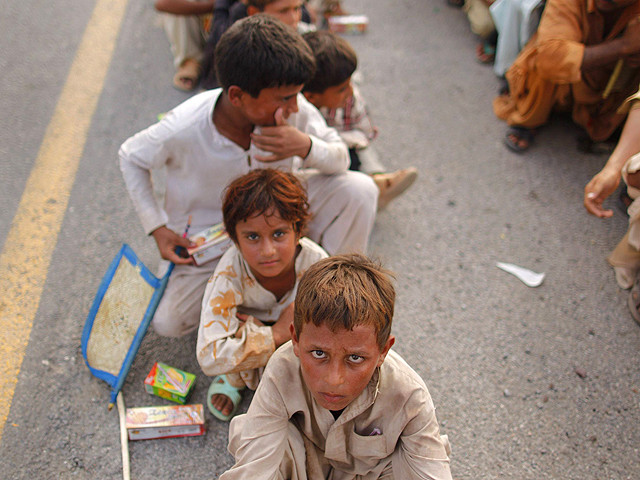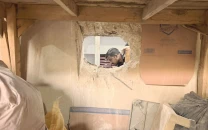Curious patients come to check up on Chinese doctors
The mobile hospital in Thatta set up by a team of 60 volunteers from China is treating about 700 patients daily.

Curious patients come to check up on Chinese doctors
“My sister encouraged me to get it checked it here thinking maybe these doctors have some medicine for me,” she said.
Muskaan was not the only permanent resident of the area seeking medical relief. Hina from Makli came for hair loss. She said that she developed the problem after her city’s water lines were polluted by flood water. In fact, people from all over the province, who have not been directly affected by the floods, have turned up once they heard the team was in town.
As a result, the mobile hospital in Thatta set up by a team of 60 volunteers from China is treating about 700 patients daily. In the two weeks since the camp was initiated, roughly 8,200 patients have arrived.
“This hospital is not here for a few days or weeks but quite some time,” said Liu Jian, the Chinese Ambassador to Pakistan, on his visit to the camp on Thursday. So far, the Chinese government has given $20 million in aid and announced further assistance of $30 million three days ago. The ambassador gave a check of Rs1.1 million to DCO Manzoor Sheikh and said that the Chinese are planning to set up more medical camps around the country.
The campsite where doctors are working day and night has attracted patients from Sajawal, Makli, Jamshoro, Gujjo, Shah Aqeeq, Chohar Jamali, Jati, and Gharo.
“We had a different interpretation of the floods before we arrived in Pakistan. It’s far more devastating than we had imagined,” said Huang Jianfa, the chief team leader. He told The Express Tribune that they ran out of medicine just two weeks after they began treating patients. Jianfa compared the floods to flooding in China and said that the disaster was worse in Pakistan due to its prolonged nature.
Dr Pin Bibo, the medical team leader, said that one promising sign was the absence of cholera and malaria, although the number of people in need of skin treatment and suffering from water-borne infections was enormous. He supervises a team of 36 doctors, of which 14 are women. He expressed the desire for more women to be working in medical relief camps because of the high number of gynaecological patients.
Many patients visiting the camp were seriously ill. Hafiz Mohammad came in with infected sores on his hands and was treated outdoors on an emergency basis. Another patient, Rahi, had come with a serious skin condition and was waiting for her second dose of medication. Both survivors and local residents flocked to the camp for aid they desperately needed. The Chinese volunteers have assured patients that the hospital is not going anywhere; a fresh batch of volunteers will come in before this one leaves. Pakistan will continue to receive assistance from its ally, which has pledged its support to see the country through its time of need.
Published in The Express Tribune, September 10th, 2010.



















COMMENTS
Comments are moderated and generally will be posted if they are on-topic and not abusive.
For more information, please see our Comments FAQ